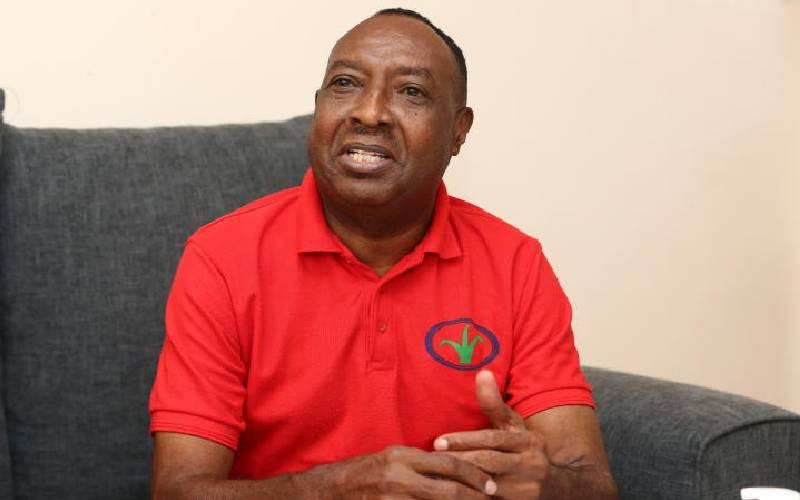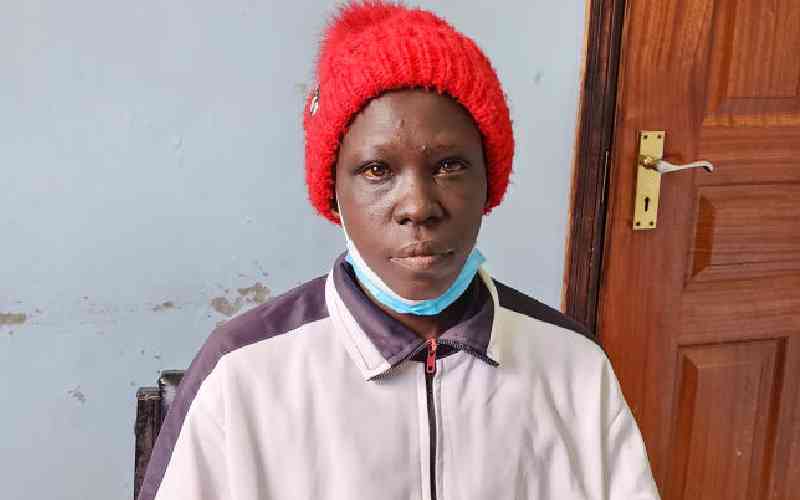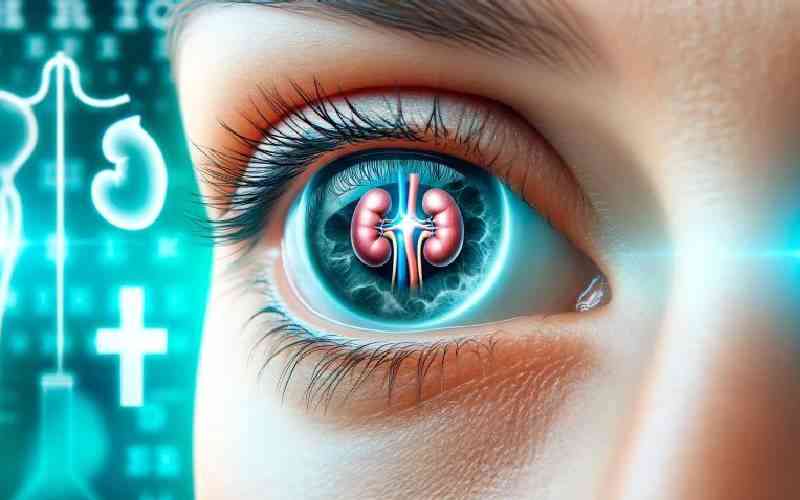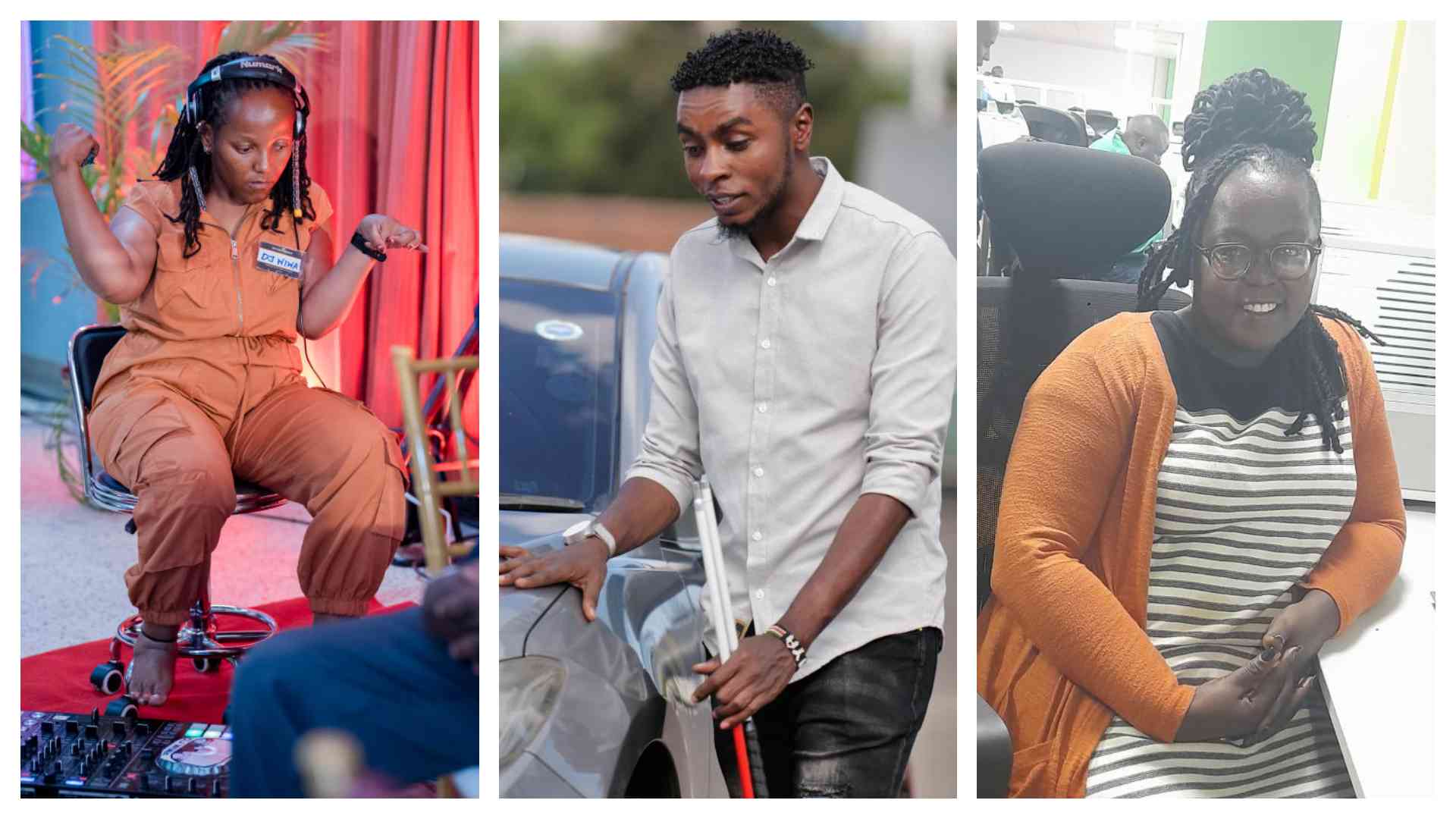Evans Makori has been at the university for eight years instead of four for his undergraduate degree. But he is determined to finish his studies between his chemo sessions. By Agnes Aineah
It all started in 2012 when I was in Form Four. In October of that year, while I was preparing for the national examinations, my legs started swelling. I also had persistent headaches and was experiencing shortness of breath and nausea. I tried painkillers in vain. And when I checked myself into a dispensary in Kisii, medics prescribed medication for typhoid and malaria.
The medication didn’t do anything for me and so I fought my way through all the pain to sit the exams. When it got too bad I would go to the dispensary every evening for a jab that would make the pain manageable. But my condition got worse as I wrote my final paper and I had to be rushed to the dispensary where the doctors, this time, ran thorough tests that revealed that my blood pressure was very high. I had also not passed urine for three days and whenever I tried, I would experience excruciating pain in my groin. That is when my parents decided to seek help at Kenyatta National Hospital.
At KNH, I was diagnosed with chronic kidney failure. Doctors said that I was lucky to be alive since both kidneys had failed. I can’t describe how shocked I was. I couldn’t understand why my health had deteriorated so fast given that I had been sick for about a month. Before that, I had been healthy, walking to school all my life and performing all my chores at home. I had to start dialysis immediately and what followed was a draining process that saw my parents lose friends and other family members because of consistently borrowing money from them to pay my medical bills. We didn’t have any medical cover. I spent Sh20,000 every week on two dialysis sessions.
KCSE results were out and when I learnt from the hospital bed that I had scored a B-grade, I found strength to fight knowing that my dream to join university had finally come true. I believe there is a way that medication works best for happy patients because not long after I started thinking about university, doctors told me I was doing well and told me I could manage as an outpatient. I stopped attending my dialysis sessions when I joined Moi University in September 2013. But in December the same year, the symptoms were back and I had to go back to dialysis. This time, my father was jobless and I had to do odd jobs to raise money for the treatment. In 2018, the dialysis stopped working for me and the doctors said my life was pegged on a kidney transplant. Luckily, fellow students at the university raised funds and added to the the amount my parents had after selling their parcel of land. The money was enough for surgery and my brother was a donor match. We heaved a sigh of relief when it was successful.
If not one thing, it is the other...
But the reprieve was short-lived, as, just a few months later, my right leg got swollen. I went to see a doctor who concluded that it was probably a result of a blockage in one of my veins that had been caused by many years of using the catheter. I was given anti-coagulants and discharged from the hospital to proceed with my studies. But the swelling got worse and in January 2019, the hospital referred me to a dermatologist who, on assessing the leg which had turned black, told me that it was likely I had skin cancer. A skin biopsy confirmed that I had the cancer.
I wasn’t very shocked. The doctors, after the kidney transplant, had told me that the drugs I was taking exposed me to other complicated diseases. The immunosuppressive drugs were aimed at lowering my body’s immunity to prevent it from rejecting my new kidney. Doctors linked my cancer to these drugs. While I had already developed a thick skin against all that was happening around me, my parents almost collapsed. I decided to remain positive if only to give them hope.
Doctors gave me two treatment options. The first, which I turned down, was to completely stop taking the immunosuppressive drugs so as to allow my body to fight the cancer cells. The second option was managing both my kidney and my cancer by reducing the immunosuppressive drugs to levels that could allow my body to fight the cancer without harming my kidney. I shot down the first option because I can’t imagine the experience I had with the kidney failure. I have been going for my chemo sessions in Eldoret since April last year. Fellow students and lecturers contribute the money needed for my medications. It is pure passion that keeps me in class. I also dread the day that I will be on my own without anyone to pay for my medication. When that day comes, I want to have my degree and to be employed.
HOW TO KEEP YOUR KIDNEYS HEALTHY
Kidneys are fist-sized organs located at the bottom of the rib cage, on both sides of the spine. They perform several functions including filtering waste products, excess water, and other impurities from the blood. These waste products are momentarily stored in the bladder and later expelled through urine.
Here are some tips to ensure that your kidneys remain healthy to perform their functions.
· Drink enough water to keep your kidney hydrated
One way to check whether or not your kidneys are getting the water they need to filter out impurities from your blood is by examining the colour of your urine. If it’s pale yellow or clear, it’s fine. If it’s dark yellow, you might need more water.
· Exercise and eat right
Stay informed. Subscribe to our newsletter
Doing this keeps your blood pressure and your blood sugar at optimum levels. And that’s good for your kidneys. Exercise and eating right keeps your heart and weight in good shape.
· Get tested
Heart disease is a risk factor for kidney disease which is a known risk factor for heart disease. Hence, if you know you have one, you should have yourself tested for the other.
· Lower your alcohol consumption
If you drink alcohol, it is recommended to have no more than one drink a day for women or two a day for men. A drink is about 12 ounces or 250 mls of beer, 125 ml of wine, or 44 ml of distilled spirits such as gin, rum, tequila, vodka and whiskey.
· Quit smoking
Smoking causes hardening of the arteries which causes both coronary artery disease and nephrosclerosis (hardening of the arteries and arterioles of the kidney. Smoking is also a risk factor for high blood pressure which can cause both heart and kidney disease.
· Check your blood pressure
High blood pressure is one of the top causes of kidney problems. If it’s too high, that can put stress on your kidneys. You could have high blood pressure and not know it, since it doesn’t have any symptoms.
· Do you have diabetes?
If you have diabetes, work with your doctor to keep your blood sugar levels in check. Diabetes is one of the biggest concerns for kidney health.
· Be careful about your medications
Some medications can cause kidney damage when taken for a long time, including over-the-counter painkillers. Other drugs such as cocaine can also lead to kidney complications.
 The Standard Group Plc is a
multi-media organization with investments in media platforms spanning newspaper
print operations, television, radio broadcasting, digital and online services. The
Standard Group is recognized as a leading multi-media house in Kenya with a key
influence in matters of national and international interest.
The Standard Group Plc is a
multi-media organization with investments in media platforms spanning newspaper
print operations, television, radio broadcasting, digital and online services. The
Standard Group is recognized as a leading multi-media house in Kenya with a key
influence in matters of national and international interest.
 The Standard Group Plc is a
multi-media organization with investments in media platforms spanning newspaper
print operations, television, radio broadcasting, digital and online services. The
Standard Group is recognized as a leading multi-media house in Kenya with a key
influence in matters of national and international interest.
The Standard Group Plc is a
multi-media organization with investments in media platforms spanning newspaper
print operations, television, radio broadcasting, digital and online services. The
Standard Group is recognized as a leading multi-media house in Kenya with a key
influence in matters of national and international interest.








